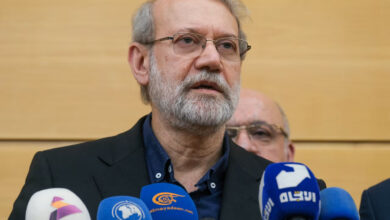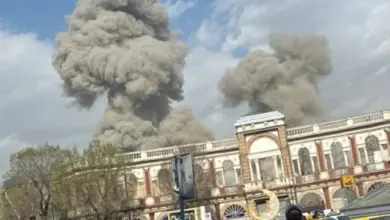State-run papers featured the unexpected accords between the Palestinian factions of Fatah and Hamas on their front pages. Al-Ahram said the accords, agreed to in Cairo and to be signed “in a matter of days,” signified a renewal of Egypt’s role in Palestinian affairs.
In a special interview with Al-Ahram, a senior member of Hamas’s political bureau, Mahmoud al-Zahar, said that the revival of the Palestinian Liberation Organization, the formation of a national unity government with a technocratic outlook, and the release of political prisoners lie at the heart of the accords. Al-Akhbar shed light on the words of Azzam al-Ahmad, the head Fatah’s parliamentary bloc, who is also responsible for the reconciliation. Al-Ahmad said the accords will be signed under Arab League auspices and that political changes sweeping the Arab World have nothing to do with the quest for Palestinian unity. He denied that Iran had anything to do with the agreement.
Both papers mentioned Israel’s disapproval of the accord and brought attention to Prime Minister Benjamin Netanyahu’s declaration that Palestinian President Mahmoud Abbas must choose between making peace with Israel and making peace with Hamas.
With the explosion of the pipeline that transfers gas from Egypt to Israel, privately owned Al-Shorouk led with another potential source of tension between Cairo and Tel Aviv. The explosion prompted Israeli officials to demand self-sufficiency, as the country cannot depend on gas from Egypt. Diplomatic sources also told the paper that Israel is nervous about its relations with Egypt in the wake of such explosions, as it has lost key allies who guaranteed strong Israeli-Egyptian relations, namely toppled President Hosni Mubarak, former Foreign Minister Ahmed Aboul Gheit and former Intelligence Chief Omar Suleiman. Security sources told Al-Shorouk that six people are behind the explosion, and they speak Arabic with an accent foreign to the area. Al-Shorouk also reports that it did not receive a response from authorities regarding how the pipeline could be attacked twice in under two months.
Meanwhile, Prime Minister Essam Sharaf’s visit to the Gulf perpetuated the pre-revolution regional status quo, as reported by the media. In the privately owned Al-Dostour, a front page story says that Sharaf noted the strength of Egypt’s relations with Kuwait during his visit to the latter. In an interview given to the Kuwaiti Press Agency, Sharaf reckoned that the Gulf Cooperation Council states represent the strategic depth of Arab national security and added that Egypt vehemently rejects Iranian intervention in Arab affairs.
Al-Shorouk’s Emad Eddin Hussein also addresses Gulf relations, writing about the inconceivability that the Gulf at large, and more specifically Saudi Arabia, would risk strong relations with Egypt in order to protect the interests of Mubarak or any of his men, an issue that was raised in headlines during the last few weeks. Those headlines indicated Saudi Arabia had allegedly pressured Egypt’s ruling military council not to prosecute Mubarak in return for its economic support. Hussein calls for confronting the subtle tensions between Egypt and the Gulf that go beyond relatively trivial disputes over Saudi-owned businesses on Egyptian land, such as al-Waleed Ibn Talal’s Toshka project in the Western Desert. The problem also goes beyond the controversial rapprochement between Egypt and Iran.
“The problem lies in one of the biggest crimes of the toppled regime, where Mubarak turned most relations with countries, especially Arab countries, into personal ones,” Hussein writes. He further criticizes Mubarak for being a subservient ally to Saudi Arabia in a way that transformed relations between the two countries into the financial dependency of a poor country on an oil-rich state. Egypt-Gulf relations should be revamped, he says, with the Gulf respecting the Egyptian people, not just their rulers, when it comes to questions of regional security.
Egypt's papers:
Al-Ahram: Daily, state-run, largest distribution in Egypt
Al-Akhbar: Daily, state-run, second to Al-Ahram in institutional size
Al-Gomhorriya: Daily, state-run
Rose al-Youssef: Daily, state-run
Al-Dostour: Daily, privately owned
Al-Shorouk: Daily, privately owned
Al-Wafd: Daily, published by the liberal Wafd Party
Al-Arabi: Weekly, published by the Arab Nasserist party
Youm7: Weekly, privately owned
Sawt al-Umma: Weekly, privately owned




